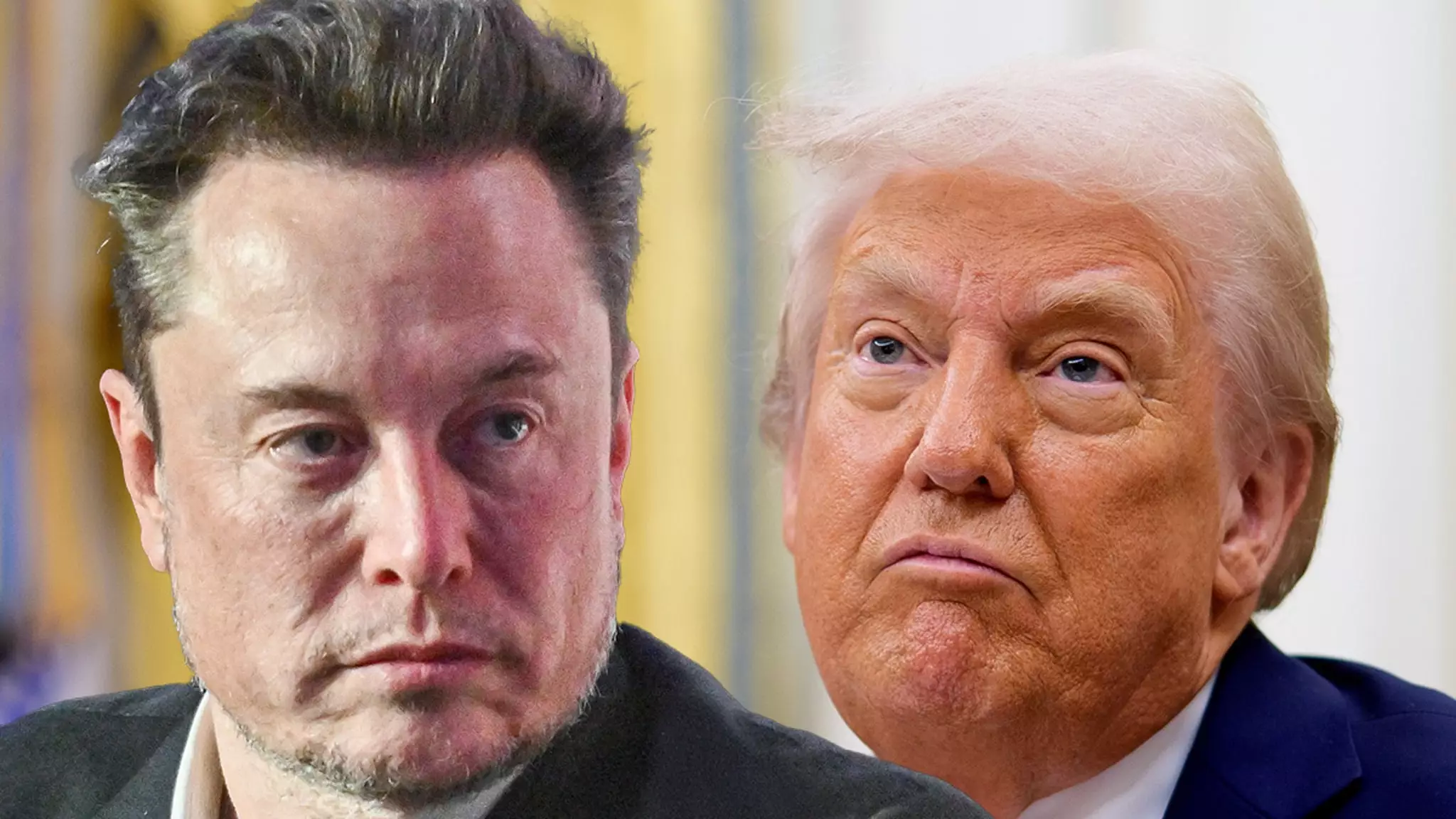In a world where technology and politics intersect with remarkable fervor, the recent public squabble between Elon Musk and Donald Trump has sparked significant curiosity and debate. The two powerful figures, who once shared a commendable camaraderie, are now ensnared in a fierce exchange of barbs primarily via their social media platforms. It’s both entertaining and alarming to witness how their verbal jabs mirror the current political climate of the United States—one rife with polarization and partisanship.
The trigger for this spectacle was Musk’s bombastic claim about Trump’s alleged connection to the Epstein files, stating on X (formerly Twitter) that this was the reason such explosive information had yet to see the light of day. This tweet not only stirred the pot but also established a battleground for what quickly escalated into a full-fledged tit-for-tat. Musk deceptively positioned himself as the perceived kingmaker, suggesting that without his influence during the last presidential campaign, Trump would have faced defeat.
Accusations and Insults
Trump’s prompt retaliation was hardly what one might call reserved. On his Truth Social platform, the former president threatened Musk’s lucrative deals and contracts with the government, implying that he could exert his influence to turn the tide against the billionaire. The insinuation alone adds layers to an already complex relationship as it raises questions about how personal and professional ties can unravel so publicly.
What stands out in their exchanges is Musk’s unwavering self-assertion. His claims suggest that without his significant backing, the Republican Party would be struggling rather than flourishing. This bravado is reflected in his response to accusations of ungratefulness. Musk expressed disbelief that the Republican establishment hadn’t recognized the pivotal role he played in their political resurgence.
The crumbling alliance showcases an ironclad truth about power dynamics: allegiance in politics can be as fleeting as a tweet. What was once mutual admiration is now shadowed by Musk’s frustrations over a recent spending bill passed by the House of Representatives, which he condemned as a “disgusting abomination.” It reveals Musk’s temperament; he vents his dissatisfaction publicly, complicating his already tumultuous relationship with Trump and inviting even more scrutiny.
The Unexpected Fallout
In a striking twist, both men have accused each other of misrepresenting facts. Musk asserted that Trump’s suggestion of him understanding the ins and outs of the spending bill was disingenuous, citing a lack of opportunity to review it. This protest against a supposedly rushed legislative process is telling of Musk’s propensity to challenge authority or any cumbersome bureaucratic structures—which is consistent with his business philosophies.
Moreover, the fabric of their conflict is woven not just from personal grievances, but also from stark ideological differences. Musk’s annoyance is not merely about financial ramifications for his companies, Tesla and SpaceX; it also crystallizes broader themes of government intervention in technological innovation. Musk’s disdain for the bill’s contents reflects a larger sentiment in the tech industry that resents overreach, especially when such overreach threatens to dampen investment in emerging technologies like electric vehicles and solar energy.
In essence, the recent feud exemplifies something glaringly evident in today’s discourse—the quicksilver nature of alliances in American politics. The spectacle offered to the public by Musk and Trump is a gripping reminder of how the political landscape is susceptible to the whims of influencers, particularly in an age dominated by social media.
The Lesson in Discord
While the exchanges between Musk and Trump may entertain onlookers, they also serve as a microcosm of the broader ideological rifts that characterize social and political interactions today. This ongoing feud is very much about more than just the personalities involved—it reflects visceral societal disputes regarding integrity, loyalty, and power. The spectacle encapsulates the chaos of modern-day politics, where allegiances shift swiftly, and public figures wield significant influence in shaping narratives. As this rivalry unfolds, it presents a cautionary tale to those navigating the intricate landscape of power politics: today’s allies could very well be tomorrow’s fiercest critics.

Leave a Reply